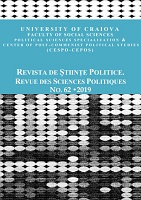EFL in the Post-Communist Era: Background, Methods and Values
EFL in the Post-Communist Era: Background, Methods and Values
Author(s): Diana MarcuSubject(s): Education, Foreign languages learning, Theory of Communication, Transformation Period (1990 - 2010)
Published by: Editura Universitaria Craiova
Keywords: EFL; Post-Communist era; Lingua Franca; GT approach; CLT;
Summary/Abstract: The present paper aims at offering an overview of teaching and acquiring English as a Foreign Language (EFL) in the period after the 1989 Revolution. Structured in four sections, it focuses on the background of teaching English in the communist and post-communist eras with reference at the changes of our educational system, the importance of English as a means of international communication and the extent of it in schools, as well as on the various methods used in classes in order to facilitate the learning process of a language. Thus, throughout these past 30 years from the communist period, one can easily notice a tremendous shift from the old-fashioned, restrictive way of teaching a foreign language to a modern approach, ready to meet the needs of both young learners and adults. The Grammar-translation method, widely used for some years in our educational system, has steadily been replaced by newer and more updated approaches to help learners become proficient users of English. Nowadays, the role of English as a Lingua Franca is definite, with more and more learners, at all ages, studying and using it in different contexts. Undoubtedly, English has become a tool of international communication and it is in the power of teachers/trainers to facilitate this acquisition process in order to meet the interests and needs of contemporary learners.
Journal: Revista de Științe Politice. Revue des Sciences Politiques
- Issue Year: 2019
- Issue No: 62
- Page Range: 146-155
- Page Count: 10
- Language: English

